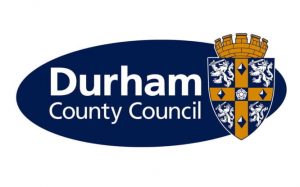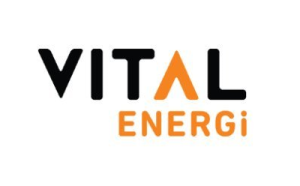Green Heat Network Fund
Round 1
Bradford
Awarded: £20 million commercialisation and construction funding
1Energy Group has received over £20 million of funding for the commercialisation and construction of the Bradford Energy network, a city-wide heat network supplied by large Air Source Heat Pumps (ASHP). This will deliver low carbon heating and hot water to residential connections and 34 non-domestic buildings, including many of the iconic heritage buildings across the city. The ASHP will be the largest installation in the UK so far, enabling buildings to decarbonise quickly and cost effectively.
The low carbon source will deliver most of the required annual heat demand whilst helping Bradford to deliver on its net zero aims. Operation is planned for early 2025.
Jeremy Bungey, Founder and Director of 1Energy, added: “1Energy are delighted to have been awarded GHNF grant to develop a substantial heat network across the city of Bradford, which will form the backbone of the city’s decarbonisation plans. Given the important role Bradford played in the Industrial Revolution, it feels very fitting that the city will be at the forefront of the energy revolution. The support of Government has also enabled us and our partners to expand our businesses to meet expected growth, a real home-grown success story.”
East London Energy
Awarded: £1.76 million construction funding
East London Energy (ELE), owned and operated by Equans, has received funding of over £1.76 million from the Green Heat Network Fund. The award will enable the extension of the network to two new sites in the Pudding Mill Lane area supported by the installation of a heat pump at the Stratford City Energy Centre, due to be operational in June 2023.
The new extension will deliver 2.7GWh per year of low carbon heating and hot water to new developments which are anticipated to require heat from 2024.
The new low carbon heat will be generated through the installation of a Water Source Heat Pump, extracting waste heat from the existing energy centre, and sleeving this directly to new developments. This extension will enable growth of the network around the Queen Elizabeth Olympic Park area.
An additional 750 dwellings are to be connected to the network with the extension, a 14% increase with the help of funding from GHNF.
James Graham, Divisional CEO for Equans UK & Ireland, said: “The funding from the Green Heat Network Fund has allowed us to invest in delivering low carbon heat from 2023 and unlock further growth of the network. Existing district heat networks will play an instrumental role in the energy transition and it’s fantastic that the government has recognised this and reinforced our decarbonisation efforts at ELE by supporting with the funds for the heat pump, the first step on moving away from fossil fuels and delivering our net zero by 2035 commitment.”
Rotherham
Awarded: £25 million commercialisation and construction funding
1Energy Group has also been awarded over £25 million for construction of the Rotherham Energy Network (REN), a low carbon heat network which will extract heat from a range of local heat sources via 8MW of large heat pumps to supply heat and hot water to residents and businesses, including public sector buildings, in and around Rotherham Town Centre.
The network will deliver 43.2GWh of heat in phase 1 using an 8MW heat pump. The network is expected to be fully operational from 2027, with first heat provision from early 2025.
Jeremy Bungey, Founder and Director of 1Energy, said: “1Energy is delighted to have been awarded a GHNF grant to develop a substantial heat network across Rotherham town centre. Rotherham MBC have really exciting regeneration plans to transform and revitalise the area and we’re looking forward to working in partnership with them and other local stakeholders to deliver a sustainable heating solution people can be proud of.”
Peterborough City Council
Awarded: £14 million construction funding
Peterborough’s Integrated Renewables Infrastructure (PIRI) has been awarded over £14 million for the development of a smart energy network which utilises intelligent digital platforms to manage and improve energy consumption.Known as “energy as a service”, PIRI will be providing place-based infrastructure that utilises existing assets to improve energy consumption through renewable technologies whilst minimising disruption to local grids, supporting future growth.
Once the project is complete, it will transport renewable heat and electrical power from Peterborough’s Energy Recovery Facility (ERF) direct to the city’s buildings via a series of underground pipework and cables. The ERF creates its own energy with non-recyclable household waste being turned into electricity and heat using a combustion process.
Councillor Wayne Fitzgerald, leader of Peterborough City Council, said: “Peterborough is ready for a project of this size and thanks to this Government funding we will be well on the way to becoming one of the first carbon-zero cities of the future. It is yet another significant indicator of the confidence that the Government has in our city’s growth and its importance on the national stage.”
Hull City Council
Awarded: £1 million commercialisation and £12 million construction funding
Hull City Council has been awarded £1 million commercialisation and £12 million construction funding for the development of a low carbon heat network. The network is a key component of Hull’s Carbon Neutral 2030 strategy and GHNF will help to kickstart the first phase of Hull’s city-wide heat decarbonisation plan. The investment will deliver an additional 22 GWh of electricity from Hull and East Riding domestic and commercial waste to 46 public and private sector customers.
Councillor Paul Drake-Davis said: “Supply low-cost heating to local residents and businesses – which will help people in this new era of higher energy bills,” acknowledging the importance of schemes like GHNF to help “make taxpayers’ money go further.”
Round 2
Cornwall Council
Awarded: £22 million commercialisation and construction funding
all Council has been awarded over £22 million from GHNF for commercialisation and construction of the Langarth District Heat Network – the first network connecting developments across Cornwall to the United Downs Deep Geothermal Project approximately 5km away. The geothermal heat source will be the first of its kind in the UK and is set to be operational in 2026.
The heat source will deliver on the network’s heat demand in the region of 50GWh/year and is expected to provide green energy to a new 3,800-unit development and Royal Cornwall Hospital, with potential for further connections in the future. Along with the new development, up to 26MW/h per year of existing commercial gas fired heating could be replaced in the Threemilestone area in addition to the new homes.
The United Downs Deep Geothermal Power Project produces power and heat from the hot granite rocks beneath Cornwall and the United Downs Industrial Site, drilling to a depth of 5,275 metres. The construction phase of the network will help to create around 100 full-time jobs, whilst the longer-term maintenance and operation will open-up 18 permanent FTE roles.
Councillor David Harris, Cornwall Council Portfolio Holder for Resources said: “The Green Heat Network Fund award will contribute to the success of Langarth Garden Village and Cornwall Council’s mission to work with communities for a carbon neutral Cornwall, where everyone can start well, live well and age well.
This heat network will be a concrete example to others around the United Kingdom of how local and national government working together with the private sector can make a real difference to people’s lives.”
Kirklees Council
Awarded: £8 million commercialisation and construction funding
Kirklees Council has been awarded over £8 million for commercialisation and construction of the Huddersfield District Energy Network. The heat network will recover excess heat from the existing Energy-from-Waste (EfW) plant in Huddersfield. The heat will be distributed through a network of underground pipes to be used for heating and hot water across public and private sector buildings.
The heat network is expected to deliver 7.6GWh of heat in its first year, rising to 14.2GWh and 21.7GWh in its second and third years respectively. The network will go towards helping Kirklees Council reach its goals for net zero carbon emissions by 2038 and is being designed with ambition for potential future expansion and connection to other heat sources.
The innovative heat network will also benefit Huddersfield by creating jobs within the local area to help deliver the scheme.
Kirklees Councillor Naheed Mather, Cabinet Member for the Environment and Kirklees Councillor Will Simpson, Cabinet Member for Culture and Greener Kirklees, said: “District Energy Networks, also known as Heat Networks, are widely recognised as one of the most effective ways of decarbonising the local heat supply in built up urban areas.
We recognise the challenges of a changing climate facing the district and are making changes and have set targets of becoming Net Zero and ‘climate ready’ by 2038 for the benefit of Kirklees residents, its wildlife, landscape and biodiversity.
The scale of the Huddersfield District Energy Network (HDEN) would contribute significantly to the decarbonisation of Huddersfield Town Centre and our 2038 targets. It will also provide the town with greater energy resilience and control over the local heat supply along with the potential for future expansion”.
East Riding of Yorkshire Council
Awarded: £12 million construction funding
Goole, East Yorkshire, has been awarded £12 million for the construction of the Goole District Heat Network, recovering waste heat from a local industrial source. The network is expected to provide heat to a mixture of residential, commercial, and industrial sites from 2024, facilitating the decarbonisation of public and private sector buildings in and around Goole. The scheme will deliver 322,000 tonnes of carbon savings across 40 years of operation once completed.
The scheme will use 2 heat recovery boilers, as well as a back-up air to water heat exchanger fitted to a duct of excavated hot air. In addition to this, the Goole District Heat Network has enabled an additional 40 jobs to work on the scheme within the local area.
Commenting on the scheme, Alan Manzies, Executive Director of Planning and Economic Regeneration at East Riding of Yorkshire Council, added: “We declared a climate emergency back in 2021 which has placed a significant focus on sustainability and climate change across the organisation. The supply of cleaner, lower cost heat will not only reduce the Council’s carbon emissions through the supply to a number of our buildings but also allow for residents and businesses to receive a financial saving, which at such a difficult time in the energy market, is vital. The Green Heat Network fund award is warmly received by the Council and will ensure that our taxpayers money goes further.”
Round 3
University of Reading
Awarded: £2.2 million construction funding
The University of Reading has been awarded £2.2 million to expand and decarbonise their energy centre at the Whiteknights Campus which currently powers their district heating network. The funding will help to replace the current CHP-led network with an open loop ground source heat pump from the below-ground aquifer.
The upgraded system will provide over 50% of the current heat network load, with additional plans for a small cooling network to be delivered by December 2025.
The Whiteknights energy centre also stores excess heat generated in two large thermal stores for times of high-demand – further creating greater energy security for the university. The network will reduce the carbon footprint of its campus by 10%, reducing emissions by 1,500 tonnes of carbon per year.
Professor Robert Van de Noort, Vice Chancellor of the University of Reading, said: “This project, and the funding to make it happen, provide a major boost to the University’s mission to continue our leadership in environmental sustainability. This demonstrates that the technologies needed for a low carbon future are within our grasp.
This is a flagship project for the University, and as with all our activities, we look forward to sharing our experience with the wider world and encouraging others to take similar actions.”
Cheshire East Council
Awarded: £2.6 million commercialisation and construction funding
Cheshire East Council has been awarded £2.6 million for the commercialisation and construction of the Handforth Garden Village Heat Network. GHNF funding will support the first phase of the project to deliver low carbon heat to 600 new homes, a hotel, primary school, shops and an extra care facility.
The primary phase of the network also includes the construction of a purpose-built energy centre and the installation of two 521kW aquifer ground-water source heat pumps. Two subsequent phases will build out in line with the housing development, connecting 1,500 new homes in total.
Councillor Mark Goldsmith, Chair of Cheshire East Council’s Economy and Growth Committee, said: “We are delighted to have been awarded this grant for The Garden Village at Handforth, which will play an important part in ensuring that we can deliver an exemplar scheme at one of our strategic housing sites and create a truly wonderful and desirable new Cheshire village for generations to come.
This grant will directly support the development and future delivery of a low carbon district heat network which could eventually cover the entire Garden Village site, served primarily by renewable ground source heat pumps located in an energy centre in the heart of the village. By reducing heating bills and harmful air emissions, the heat network will improve the health and wellbeing of those living, visiting, and working in the village and will have a direct and significant benefit towards tackling the climate emergency and our UK100 objective for the borough to be net-zero by 2045.”
Plymouth City Council
Awarded: £1.2 million commercialisation and construction funding
Plymouth City Council has been awarded £1.2 million for the extension of their existing heat network which currently serves the Council House and Guildhall. The installation of a 480kW air source heat pump will provide sustainable heating to the redeveloped Civic Centre (which, when complete will comprise 144 new homes and a commercial space) as well as the Theatre Royal and Plymouth Combined Courts. Nearby developments in the City Centre and Millbay are also being considered for future connection.
Councillor Tom Briars-Delve, Cabinet member for the Environment and Climate Change, said: “I’m really pleased to gain this funding to help us further decarbonise a number of Plymouth’s most prominent public buildings.
In order to bring other partners across our city on board, we have to set the standard and the Civic District Heat Network does just that by proving that there is a viable and effective alternative to fossil-fuelled heating.”
London Borough of Brent
Awarded: £5.2 million commercialisation and construction funding
In North London, £5.2 million of funding secured by the London Borough of Brent will enable local regeneration. The initial phase (1.2GWh) of the South Kilburn District Heat Network will supply low carbon heat using air source heat pumps combined with back up gas boilers. The heat pumps will be located on the rooftop of an existing property and will supply heat to 34 sites via a 2.79km pipe network, providing heating to 2,900 customers. The scheme has been future-proofed to enable additional growth of the network, with subsequent phases being delivered through the addition of a second energy centre.
Councillor Shama Tatler, Cabinet Member for Planning, Regeneration and Growth, said: “Regeneration across the borough is about bringing opportunities, growth and jobs to the local population. We always put the environment at the heart of our projects and the South Kilburn District Heat Network is a great example of that, creating low carbon heat for over 34 sites, as well as being future proofed so that we can increase the network to other homes in the future.”
Watford Community Housing
Awarded: £1.8 million construction funding
Watford Community Housing, a not-for-profit housing association with approximately 5,700 homes, will receive £1.8 million of funding to replace an old gas district heating system. To deliver its decarbonisation targets in one community, Watford Community Housing has decided to install a district heating scheme using a ground source heat pump (GSHP). The scheme will provide affordable, low carbon heat to residents in 252 apartments across 6 blocks. Watford Community Housing has demonstrated commitment to renovating properties across its portfolio and the £1.8 million of funding will allow the housing association to replace an old gas district heating system which was built in the 1960s and is economically unviable, with a new, highly efficient one.
Helen Town, Group Director of Property and Partnerships at Watford Community Housing, said: “Watford Community Housing is delighted to be taking part in the Green Heat Network Funding programme. This will enable us to bring in a renewable energy alternative to a dated district gas heating system. This will make a real difference to residents and is part of our wider commitment to promote the decarbonisation of our homes and affordable warmth for our customers.”
Chilton Woods – Suffolk
Awarded: £745,000 construction funding
A Taylor Wimpey development at Westland Heath in Suffolk has been designed to incorporate a community heat hub which is able to provide low/zero carbon heat to family housing developments. The scheme is a result of extensive development work by GTC, Metropolitan and Taylor Wimpey and is expected to become a standardised GTC offering which can be used across the housebuilding industry high quality, fossil-free heating.
The community heat hub has been designed to provide heat to up to 950 residential connections and a primary school, and the initial spine network has already been constructed. The Green Heat Network Fund award will enable the completion of the heat hub and installation of air source heat pumps.
Andrew White, Metropolitan Managing Director commented: “We are really excited to be able to welcome new customers on our newest zero carbon heat network at Taylor Wimpey’s Westland Heath development. This is the culmination of several years of collaboration between GTC, Taylor Wimpey and Metropolitan and will showcase how new build development can help the UK in reducing its carbon emissions. Our network solution is already better value for house builders and homeowners, compared to each house owning a heat pump.
The exciting thing is that our solution provides valuable services to enable a smarter electricity grid. The central Heat Hub provides a single exit from the electricity grid. We use thermal stores to reduce grid connection capacity and can add a battery to reduce this further. And we use this demand side response to create more value from grid wholesale and balancing, which will reduce homeowner bills further.”
Exeter Energy Network
Awarded: £42.5 million commercialisation and construction funding
The Exeter Energy Network will be developed by the 1Energy Group, which is investing an additional £70 million in the project. The heat network will incorporate the UK’s largest high-temperature water source heat pump and will potentially utilise other local sources of waste heat in the Exeter area. This will be installed alongside a minimum of 500m3 of thermal stores to provide additional efficiency and flexibility. Renewable heat will be distributed from an energy centre to buildings across the city via a 20km network of highly insulated underground pipes. Buildings which connect to the network will see an initial reduction of 65-75% in carbon emissions compared to gas heating, reducing carbon emissions by 13,000 tonnes per year.
Jeremy Bungey, Executive Director of 1Energy, said: “The Exeter Energy Network will deliver efficient and renewable heat to buildings across the city. It will cut carbon emissions and contribute to improvements in air quality by reducing the need for old, fossil fuel-based heating.
Exeter is a centre of innovation for climate science, and we look forward to working with people across the city to deliver this project. We expect the construction of the Energy Centre to begin in 2025, and the network to start providing low carbon heat to our customers in 2026.”
Round 4
Old Oak and Park Royal Development Corporation (OPDC)
Awarded: £36 million commercialisation and construction funding
The innovative project is the first of its kind to secure GHNF support, with the cooling of data centres offering a predictable supply of low-grade heat to distribute to a number of energy centres via a plastic “ambient” network. The ambitious project will offer unrivalled connectivity for thousands of new and affordable homes, businesses and services in the area. The OPDC area spans three London Boroughs in the largest adopted Opportunity Area in London. Heating will be delivered to over 10,000 homes and 250,000m2 of commercial space, all the while creating 22,000 new jobs.
Due to the scale and innovative nature of the project, the Mayor of London’s Local Energy Accelerator (LEA) funding programme, which was co-funded by the European Regional Development Fund, has also provided almost £400,000 to fund technical expertise to develop the OPDC-led heat network.
David Lunts, OPDC Chief Executive, said: “Recycling the huge amounts of wasted heat from our local data centres into heat and energy for local residents, a major hospital and other users is an exciting and innovative example of OPDC’s support for the mayor’s net zero ambitions. We are excited to be leading the way in developing low carbon infrastructure, supporting current and future generations of Londoners in Old Oak and Park Royal to live more sustainably.”
Lancaster University
Awarded: Over £21 million commercialisation and construction funding
Lancaster University is set to fully decarbonise its campus with a low carbon energy centre. The centre will use air source heat pumps, thermal storage and electrical infrastructure works, providing 45 GWh of low carbon heat sufficient to provide heating and hot water for virtually all of the campus.
Lancaster University has placed carbon neutrality at the centre of its Estates Strategy with a number of initiatives including the University’s “Heat Pump Ready Buildings” programme. The heat pumps will be supplied by renewable electricity from a new solar farm and an existing wind turbine, providing a low carbon solution for heat and electricity supply to the whole campus for the next generation.
Professor Simon Guy, Pro-Vice-Chancellor Global Digital, International, Sustainability at Lancaster University said: “Lancaster University has a long-established reputation for its world-leading education and research. With this next step, Lancaster aims to be among the best in the world for offering students and staff a sustainable and carbon neutral campus in which to work and study. Our students want to go out into the world to make a difference – what better start to that ambition than a world-class university education which is mindful of the planet and places sustainability at the heart of its decision making.”
Hull East Heat Network
Awarded: Over £22 million commercialisation and construction funding
The heat network will provide low carbon heating to 14 public sector council buildings and a mixture of industrial customers, helping to decarbonise one of the UK’s industrial hotspots. As part of the network, Hull East are also hoping to secure green solar energy to help power the network whilst feeding energy into other customers across Yorkshire Energy Park, a next generation energy and technology business park currently in development.
Mike Cooke, Managing Director of Vital Energi, said: “We’re delighted with the award of the Green Heat Network Funding which will allow us to deliver the Hull East Heat Network. Taking waste heat from Saltend Chemicals Park situated on the Yorkshire Energy Park, we aim to decarbonise commercial and residential buildings across Hull, bringing them closer to a net zero future with low carbon heat and hot water.”
Round 5
Bolton District Heating Network
Awarded: £11 million commercialisation and construction funding
Support from the Green Heat Network Fund will unlock the funding of an innovative network which uses a heat pump to extract waste heat from the combined sewer that runs through Bolton town centre. This innovative project captures and distributes waste heat pre-heated from washing machines, showers, baths and kitchens to capture and distribute to buildings. As a result, the heat network is expected to save 123,000 tonnes of carbon emissions over 40 years, the equivalent of taking 15,000 cars off the road, a 75% reduction in emissions. The project will also be supplemented by additional capacity from an Air Source Heat Pump, allowing for further expansion across Bolton.
Bolton Council’s Executive Cabinet Member for Climate Change and Environment, Cllr. Richard Silvester, said:“I am fully behind and supportive of Bolton’s proposed district heat network. This will be an innovative and ambitious way to reduce greenhouse gas emissions and improve air quality in Bolton town centre. It will be a major project as part of the council’s Climate Change strategy. It will generate energy that is not only clean and green, but also affordable, lowering energy bills for all connected customers and increasing energy security and resilience.
The scale of this project demonstrates the council’s commitment to a low carbon future for Bolton and the wider city-region, delivering on our climate emergency obligations, and we expect it to benefit residents and businesses in Bolton town centre, as well as helping to attract new investment that will boost jobs and regeneration.”
Greenwich Peninsula ESCO District Heating Network
Awarded: £4.6 million commercialisation and construction funding
Funding provided by GHNF will unlock low carbon heat for 2,300 existing homes and 7,115 new build homes. Low carbon heat will also be provided to 84,000m2 of existing commercial space, with an additional 10,400m2 new planned commercial space as the development expands. The project will be made possible by a 5MW Air Source Heat Pump installed on the rooftop of the existing Greenwich Peninsula Energy Centre.
Steve Yewman, Chief of Staff at Knight Dragon, said: “As part of our ESG strategy, we are committed to investing in Greenwich Peninsula to create a sustainable and resilient community that is built on principles of equity, environmental protection and economic prosperity.
We want to ensure the infrastructure that underpins our development supports the lives of the people that choose to live here whilst protecting the environment. We believe this investment will make a positive environmental and social impact and are looking forward to rolling this out as part of our strategy to transition into a net zero carbon business.”
Heat Networks Investment Project (HNIP)
Read our case studies: click here to explore a portion of the work made possible by the success of the Heat Networks Investment Project (HNIP).
Pilot Round
The Heat Networks Investment Project (HNIP) pilot ran from October 2016 to March 2017. Nine applications were successful in the pilot phase. Total awards are worth over £24 million.
Round 1
Barking Town Centre Strategic Distribution Energy Scheme

Award: £5,000,000 of grant funding for commercialisation and construction
Barking and Dagenham Council has been awarded £5m to co-fund the creation of a landmark low carbon UK district heating scheme in Barking Town Centre. The project has been classified as strategically significant by the GLA and builds on the borough’s ambitions to become the green capital of London. It involves modification of the existing energy centre on the Gascoigne East Estate, Weavers Quarter, and the construction of a new large-scale energy centre. Together these will supply over 30 GWh per year of low carbon heat into a new Barking Town Centre wide heat network, serving a mixture of new developments comprising over 8,000 homes, together with existing buildings. Initially, supplies of heat will come from gas-fired combined heat and power units, but over time these will be replaced with existing sources of waste heat in the borough to deliver zero carbon heat supplies.
Councillor Darren Rodwell, Leader of Barking and Dagenham Council:
“I am delighted to see our ambitions being supported in this way and look forward to seeing our vision for a low carbon borough come to fruition. We’re always striving for a cleaner, greener borough, for the benefit of our residents, and the delivery of this scheme is a major step forward for us.”
Bristol Redcliffe Heat Network

Award: £3,600,000 of grant funding for commercialisation and construction
The extension of the Bristol Redcliffe heat network will involve the expansion of the existing network and the installation of a second low carbon energy centre to supply heat to a number of new commercial developments in the area. The current scheme, which utilises biomass boilers, was completed in 2016 and supplies 700 social housing properties.
The extension will use the additional capacity within the current energy centre as well as the new energy centre, located within the council’s offices, which will include new gas CHP and back up boilers. The scheme will also include future proofing works to enable the network to be connected to additional existing loads and proposed new developments around Bristol Temple Meads. In addition to this section of the network the council will also be expanding to new areas of the city which will be served by new renewable sources such as water source heat pumps and geo-thermal technology.
Cabinet Member for Energy, Transport and The Green New Deal, Councillor Kye Dudd:
“We know that heat networks make a big impact on our city’s use of carbon. By providing low carbon sources of heat we are helping to make a big shift towards building a carbon neutral Bristol by 2030.”
Read more about the scheme here.
Leeds City Council

Award: £2,400,000 in grant funding for construction
The Leeds PIPES scheme is a recently-completed district heat network that has already begun delivering heat to Leeds. It currently comprises a network of around 16km of pipework, delivering low carbon heat and hot water, generated from waste steam created by the Recycling and Energy Recovery Facility (RERF), to commercial properties and council-tenanted properties. HNIP funds will be used to extend the network into the city centre, connecting five council buildings and allowing other existing buildings and developments to connect in the future. The pipework therefore will be sized to enable a future extension to the South Bank, an area of major development and regeneration. The extension of the network comes at a key time, as Connecting Leeds will deliver extensive highways remodelling in the city centre.
Councillor James Lewis, Executive Member for Resources:
“It’s fantastic to have secured funding to extend the district heating. This expansion means that we will be able to connect more of the city’s buildings to the Leeds PIPES network and further reduce the use of individual, fossil fuel powered boilers—helping building owners save money on energy, improve local air quality and reduce the city’s carbon footprint.”
Read more about the scheme here.
Veolia: South East London Combined Heat and Power Heat Network
Award: £5,500,000 of grant and loan funding for commericalisation and construction
The network will consist of a spine running from the plant to Lewisham and connections to an anchor load comprised of commercial and residential units. This will create a network of approximately 1.7 km capable of delivering in excess of 30 MW of low carbon heating demand. The proposed heat network will provide immediate and long term carbon reduction to these developments compared to alternative heating options while providing good value heating to residents and businesses.
Richard Kirkman, Chief Technology and Innovation Officer, Veolia UK and Ireland:
“We welcome this award which will contribute to the expansion of the SELCHP district heating network and demonstrates the vital role modern energy from waste plants are playing in heat decarbonisation. This is a major factor in achieving the net zero goals, and showcases how energy from waste technology can meet this ambition by lowering fossil fuel use and reducing climate changing carbon emissions. More importantly it makes use of non recyclable household waste, so communities get the benefit of reliable and affordable heat generated from the waste they discard. If all non recyclable waste was diverted from landfill to energy recovery, the UK would save in the region of 880,000 tonnes of CO2 per year.”
Round 2
Bristol City Council: Old Market Heat Network

Award: £6,590,000 of grant funding for commercialisation and construction
A new network in Bristol, as the City Council seeks to install a city centre-wide provision of low carbon heat through heat network pipes. Designed to supply low carbon heat from the Energy Centre at the current Castle Park Council Depot site, at full build out the energy centre will comprise of a Water Source Heat Pump, Gas CHP and Gas peak and reserve boilers. The Phase 1 Old Market Network will supply 17 buildings including 4 residential blocks, 10 office blocks, 2 hotels and 1 school with an annual demand of 14.4MWh, through 1.6km of DH pipe. Over the next 25 years, the Old Market Network Phase 1 project will save around 76,911 tonnes of carbon. In the longer term, there may be more opportunities for new low or zero carbon sources of heat to connect to the network.
Councillor Kye Dudd, Cabinet Member for Energy and Transport:
“Our Bristol heat network has such a vital role to play in our city’s journey to carbon neutrality. The council has invested over £7 million in this infrastructure over the last five years and will continue to expand the network to serve new communities with low-carbon heat. This new funding from BEIS is so welcome to support the growth of the network and will enable us to innovate with new technology that will provide zero carbon heat to a number of new developments in the city. It’s also very exciting to see old fossil fuel infrastructure like the Bedminster coal mine being considered for use to provide zero carbon heat for the future – another example of Bristol’s ability to find pioneering ways to tackle the climate emergency.”
Read more about the scheme here.
Energetik: Meridian Water Heat Network
Award: £14,760,000 of grant and loan funding for construction
Meridian Water Heat Network will supply waste heat to at least 15,000 homes, with potential to rise to in excess of 30,000 over the lifetime of the network. The project is planned to be operational in 2022 and will be extended as new developments are built. Connection to the North London Waste Authority’s new Energy Recycling Facility (ERF) when built in 2026 will provide a very low carbon heat supply.
The energy centre will initially use gas fired boilers, enabling the heat network to supply customers with heat from 2022 before connecting to the ERF to supply up to 60MW of waste heat. The network’s construction will enable 8.9km of heat network piping to be installed, eventually serving multiple large housing developments. Once the ERF is connected in 2026, the equivalent annual carbon savings will exceed 2200 tonnes and will rise rapidly over the next 10 years to over 5700 tonnes per annum in 2036.
“We’re thrilled to announce that Energetik has been awarded a £14.76 million share of the Heat Networks Investment Project (HNIP) fund. On the 6th of February, Triple Point formally announced the first beneficiaries and our company stands amongst the seven successful applicants! All beneficiaries have been described as promising and highly deliverable heat network projects and have been selected to receive a first share of the £320 Million fund. We’re truly honoured to be acknowledged on a national level. This funding will be used to unlock the next phase in our business plan helping to build our Meridian Water heat network.”
Read more about the scheme here.
Peel Energy, part of Peel L&P: Liverpool Waters Heating Network
Award: £1,300,000 of grant funding for construction
Peel Energy, through its supply company (ESCo) Mersey Heat is delivering a district heat network to serve Peel L&P’s Liverpool Waters development and surrounding areas including 2,000,000m2 of development floorspace, 9,000 residential units, 315,000m2 of business space and 53,000m2 of hotel and conference facilities. The awarded funding will support the supply of heat to multiple residential and commercial buildings with a temporary energy centre. A planned transition to a low carbon heat source will occur in the future to reduce carbon emissions.
Jon Burley, Commercial Director at Peel Energy, part of Peel L&P:
“It’s great to see the Government get behind clean growth projects across the country and in Liverpool, this funding will help us to deliver the first phase of our Mersey Heat network to benefit businesses and thousands of residents with low-cost heating and ultimately support our drive to create low carbon communities and make the City Region a greener place to live, work and invest.”
Read more about the scheme here.
Round 3
Gateshead District Energy Scheme
Award: £5,909,000 grant funding for commercialisation and construction
The grant will support the commercialisation and construction of the first major, strategic eastward expansion of the heat network within the Gateshead District Energy Scheme. This will enable the scheme to supply lower cost, lower carbon heat to an additional 12 GWh of heat load by 2030 represented by four Council buildings, a care home and, in time, up to 1250 new private homes within the Exemplar Neighbourhood, Gateshead’s largest new-build housing development site. Significant decarbonisation is achieved by the installation of a 6MW mine water source heat pump, to provide geothermal heat into the network, displacing the gas boiler generated heat, as well as reducing the operating hours of the existing 4MW gas CHP engines.
Councillor John McElroy, Gateshead Council Cabinet member with responsibility for energy:
“The council has always seen the development of low-carbon energy as key to meeting our climate change goals, but also in generating lower-cost energy for residents and organisations in Gateshead. This grant allows us to take this one step further. This new proposal uses a source of energy that is already under our feet but which is virtually unused. Thanks to the continued development of heat pump technology, we are at last able to properly exploit this abundant untapped heat source and use it to warm thousands of homes and businesses in Gateshead.
“We have been looking at this proposal for some considerable time, so the award of this grant is timely and its means we can now begin to bring it to fruition. There must be hundreds of miles of abandoned mine workings beneath Gateshead and many of them are flooded providing access to a sustainable source of heat, so there is huge scope for more initiatives like this. It is particularly satisfying that we can exploit the forgotten remains of an old industry – and a heavily polluting one at that – to create clean green energy.”
Read more about the scheme here.
Bridgend Town Heat Network
Award: £1,241,000 grant funding for commercialisation and construction
Initially, the scheme will serve public sector buildings in the town centre which includes Bowls Hall, Civic Centre offices, Bridgend Life Centre (leisure centre) and a new development. The network will allow for the expansion to other buildings in the immediate vicinity including local business and residential units. The energy centre will be based at the Bridgend Life Centre and initially use gas fired CHP with back-up gas boilers. These will be replaced with a larger CHP unit and new backup/ peak boilers with the addition of thermal storage tank at the rear of Bridgend Life Centre as the scheme develops. Key objectives for the scheme are to continue to provide reduced energy costs for customers, provide carbon emissions savings compared to alternative strategies and, over time, further decarbonise heat supplies.
Councillor Richard Young who is Cabinet Member for Communities:
“Bridgend County Borough Council is proud to be the first recipient of HNIP funding in Wales. The Bridgend Town Heat Network Project is a key part of our plans to decarbonise heat within Bridgend and forms part of our Smart Energy Plan developed with the support of the Energy Systems Catapult through the Smart System and Heat Programme to drive forward and capture the economic and social benefits of decarbonisation. The HNIP funding will enable us to progress the scheme through its commercialisation phase by first accessing £241,000 funding and, should that phase meet all necessary requirements, then to place Bridgend County Borough Council in a position where it can determine whether to move the project through to, and beyond, construction and accept the further £1m of funding.”
Read more about the scheme here.
Round 4
Cardiff Town Heat Network
Award: £6,628,000 grant funding for construction
The proposed Cardiff Heat Network begins at Trident Park Energy Recovery Facility (ERF) plant in Cardiff Bay, spreading across the Bay area before crossing the main Cardiff to London railway line, as part of a later phase. Funding from HNIP will support Phase 1 of the network which will reach to the area immediately south of the railway line. Utilising the ERF plant will allow the network to supply the 12 GWh per annum of Phase 1 Customer heat demand, whilst a separate energy centre containing back-up gas boilers will provide further capacity, ensuring resilience to the network. Once fully built out (phase 1 and 2) connections will have a combined annual heat demand of 34 GWh with adjacent private sector buildings having a combined annual heat demand of approximately 22 GWh. Part of the HNIP funding will support the costs of future proofing the network to accommodate for this potential future growth.
Cllr Michael, Cardiff Council’s Cabinet Member for Clean Streets, Recycling and Environment said:
“We’re very pleased to have been awarded an HNIP grant for this important low carbon infrastructure project. The scheme will allow us to capture heat already being produced from Cardiff’s residual waste and use it to deliver a low carbon heat source to large buildings in the Bay. Buildings that connect to the heat network will have the potential to reduce their carbon emission by around 80% compared to traditional gas heating and so this scheme forms an important part of our response to the Climate Emergency. The grant funding will help to kick start a scheme that can grow and evolve over the long term bringing low carbon energy security to the heart of the Capital city.”
Round 5
Solihull Metropolitan Borough Council, Solihull Town Centre Low Carbon Energy Network
Award: £6,591,000 commercialisation and construction grant
The network will supply public and commercial buildings in Solihull Town Centre using a combination of a 1.7MWth air source heat pump, 1,560 kWe gas-fired Combined Heat and Power engine (prioritised for network heat supply) and auxiliary gas boilers. Electricity generated by the CHP will supply the Energy Centre and heat pump operations, 4 public and private sector customers via private wire supply and or grid export depending on electricity demand and grid electricity prices. Initially, the scheme will supply heat to a Council building and four education sites to the south, and then cross under the railway line to supply further public sector and commercial buildings to the east. The network accommodates expansion to new developments within the town centre masterplan. No domestic connections are envisaged in phase 1, although new developments in the town centre are likely to include residential apartments. Solihull Council has received support from the Heat Networks Delivery Unit (HNDU) prior to applying for HNIP funding. Heat on is expected in late 2022.
Cllr Andy Mackiewicz, Portfolio Holder for Climate Change, Planning & Housing, Solihull Council said:
“As a Council we have committed ourselves to taking the necessary local action to tackle the climate change emergency. Through our ambitious Net Zero Action Plan we are developing a strategic approach to the challenge of decarbonising the borough over the next twenty years.
“The funding announced today is fantastic news for Solihull as innovative schemes like this will have a significant role to play in helping us to achieve our goal of net zero carbon emissions by 2041.
“We know that decarbonising heating for schools, homes, offices and other business uses can be prohibitively expensive for building operators on an individual level. However, a central town centre energy network provides a unique opportunity for existing buildings and new developments to benefit from low carbon heat generation. This scheme will help us to reduce the borough’s greenhouse gas emissions while providing customers with a highly efficient and affordable heat supply.
“With this vital funding now in place we can move to the next phase of this exciting project and the real work can begin. While we still have a long way to go this feels like a significant step forward in our journey towards net zero emissions.”
Read more about the scheme here
Seaham Garden Village
Award: £3,800,000 grant for commercialisation and construction
The proposed Seaham Garden Village district heat network, if built out, is expected to supply low-carbon geothermal heat from former coal mines to a new development to the south of Seaham. It is hoped that the scheme will be a commercially viable sustainable energy demonstrator project that can be duplicated across the UK coalfields which contains ¼ of UK population and as such is of strategic importance. It is forecasted that up to 1,500 homes could connect to the network over time. This is a planned new build housing development and so construction has not yet commenced, it would be proposed that the heat network would be installed in tandem with the housing infrastructure including roads, roundabouts etc, to minimise costs and installation time.
Mine water is continuously pumped from the mine and treated to remove contaminants at the Dawdon Mine Water Treatment facility adjacent to the development. Dawdon is just one of 75 mine water treatment schemes across the UK that the Coal Authority operates. The mine water is heated by geothermal processes to circa 20°C providing low-cost low-carbon heat.
The new energy centre would comprise of a 1.022MW water source heat pump and later be expanded to include an additional water source heat pump of the same size. The energy centre would supply heat sourced from mine water to a new underground pre-insulated plastic heat network built out over 3 phases with a total trench length of 17.464km.
Cllr Kevin Shaw, Durham County Council’s Cabinet member for strategic housing and assets, said:
“The development of a proposed mine water district heating network to supply low carbon heat to new residents is an exciting project. It will offer a wide range of benefits, including residents accessing renewable and affordable warmth in their homes, and it will create new jobs and will help the council progress towards being carbon neutral by 2050. It is a fitting legacy to the mine workers who toiled in the coal seams that produced the coal that powered the Industrial Revolution that those same seams could now help power the Green Revolution in the future. This project is an excellent opportunity for County Durham and one that the council is excited to facilitate and enable.”
Read more about the scheme here
Newcastle University
Award: £2,900,000 loan for construction
Newcastle University has secured funding to support the extension and upgrade of existing District Heat network on their city centre campus in Newcastle upon Tyne. The project will involve the development of new pipework from an existing energy centre to serve a new development on the campus and also supply heat to some existing properties. The University will replace the current gas boilers with a new liquid biofuel combined heat and power plant (CHP) which will deliver substantial carbon savings across the site.
Matt Dunlop, Head of Sustainability at Newcastle University said:
“It is fantastic to receive HNIP support for this major heat decarbonisation project on our Newcastle campus, and we look forward to delivering this and many more carbon reduction projects in pursuit of our Net-Zero Carbon target”.
Cambridgeshire County Council: Swaffham Prior
Award: £3,268,0000 grant for commercialisation and construction
In 2018, the Council had been approached by the Swaffham Prior Community Land Trust (a group comprised of residents motivated to provide affordable housing in the village) to collaborate on this community heat scheme. The funding will help the 300-strong village to transition from oil to low carbon heating and is thought to be the first project of its kind to actively collaborate with members of the local community to deliver a village wide scheme. Led by a community with a common goal for change, the scheme will provide a blueprint model which can be refined and replicated by other communities across the UK.
Sheryl French, Programme Director, Climate Change and Energy Investment said:
“This is a fantastic project and a first of its kind that we know of in the country. Retrofitting a whole village is a challenge but the Swaffham Prior Community Land Trust has been a great partner driving the project forward. Securing the funding is a huge step in creating accessible renewable heat for oil dependent homes in Cambridgeshire. Cambridgeshire County Council is committed to tackling climate change and I’m looking forward to seeing the continued success of this project.”
Round 6
Manchester Octagon Project Energy Network (OPEN)
Award: £740,000 grant for commercialisation and £12,900,000 loan plus £1,000,000 grant for construction
The Octagon Project Energy Network (OPEN) is being undertaken by Manchester Energy Partnership Limited (MEPL), a joint venture between Sustainable Energy Supplies Limited Ltd, and Electricity North West (Construction and Maintenance) Ltd. The project also brings together key organisations in the region committed to reducing carbon emissions, creating employment opportunities and contributing to the overall wealth of the city. MEPL has been working with Manchester City Council and the Greater Manchester Combined Authority for over 7 years to create the network as part of plans to bring commercial vibrancy, growth and regeneration to the city’s strategic Southern Corridor. MEPL will initially construct close to 10Mw of electricity from Combined Heat and Power (CHP) generation, which will be combined with Photovoltaic Solar Panels and Air Source Heat Pumps throughout the network. The project also plans to be one of the UK’s first local energy centres to benefit from the inclusion of a 20% mix of Green Hydrogen with natural gas in 2024, further reducing carbon emissions long term.
Richard Everton, Chairman of the Manchester Energy Partnership said:
“I am delighted that the tenacity and single mindedness of the MEPL team has turned what was a personal “pipe-dream” into a financially viable and practical reality for the city of Manchester. The support received from both the local authority and central government is proof that multiple agencies can work together with the private sector to bring about infrastructure projects that will benefit communities, in pursuit of fuel efficiency and to reduce carbon emissions in our major cities. Manchester is taking a strategic lead in achieving “Net Zero North West.”
Leeds City Council
Award: £3.06 million for construction
Leeds City Council has secured £3.06 million of grant funding from the Heat Networks Investment Project (HNIP) to enable £7.4 million of upgrades to its award-winning district heat network to go ahead. Plans to extend Leeds’ the network by 2,500 metres has started following the award of HNIP funding. This award follows a previous award of £2.4 million for an earlier futureproofed extension into the city centre. The extension marks the third major phase of the Leeds PIPES network and means that more buildings in new areas of the city will soon be able to enjoy the benefits of reliable, affordable, and low carbon district heating.
In 2021, the network of insulated underground pipes, soon to stretch more than 28 kilometres (17 miles) in length, supplied 15,454 megawatt-hours of heating and helped reduce the city’s carbon footprint by more than 2,000 tonnes. The £49 million network continues to expand and is regularly connecting to new buildings. A key scoring metric for HNIP funding was the ability to expand and further decarbonise over time. Buildings and developments located nearby can choose to connect at any time and the council has seen strong interest from private developers and public sector organisation across the city.
Councillor Helen Hayden, Leeds City Council’s executive member for Infrastructure and Climate, said:
“The Leeds PIPES district heating network is one of our most exciting infrastructure projects and has real momentum behind it with more public, commercial, and residential buildings all choosing to connect.
“By extending the network to more parts of the city, I am delighted that we’ll soon be able to give even more businesses and residents the opportunity to enjoy affordable, reliable and low carbon heat—helping them to move away from costly fossil fuel based systems and towards a greener future.”
Round 7
Cory
Award: £1,600,000 commercialisation grant and £10,509,000 construction loan
Cory’s existing Riverside energy from waste (EfW) facility will provide heat for up to 10,500 homes in Bexley in the first phase of the proposed heat network. A second EfW facility – adjacent to the existing one and part of Cory’s Riverside Energy Park which received planning permission from the Government in April 2020 – will supply an additional 10,500 homes. Serving a combined 21,000 homes, the heat network will be among the largest in the UK exemplifying the type of ambition needed as the UK transitions to net zero. Cory will work with Vattenfall to deliver the project; a collaboration that will also support Vattenfall’s wider vision to deliver low carbon heating to 75,000 homes across the Thames Estuary over the next decade. The wider heat network will draw on secondary heat sources, such as heat as a by-product of commercial or industrial activities, or heat from the environment.
Dougie Sutherland, CEO at Cory, said:
“We are delighted that BEIS is supporting the development of one of the UK’s largest heat networks. This is a very major step towards net zero, providing low-carbon heat for thousands of homes and businesses in Bexley and its surrounding Boroughs.”
Energetik
Award: £12,000,000 grant and £11,859,000 loan funding for construction
Energetik will deliver two major extensions of its community heat network across the London Borough of Enfield to enable the supply of very low carbon heat to over 50,000 homes. This funding award follows an initial grant and loan to support the construction of the Meridian Heat Network in Funding Round 2 (see above). The extensions will link together and significantly decarbonise all existing heat networks in the London Borough by connecting them to the upcoming Meridian Water energy centre at Edmonton Eco Park, which will connect to the North London Waste Authority Recovery Facility once complete in 2026.
The northwards extension will link the Meridian Water Heat Network with the existing Ponders End Heat Network, serving two new housing developments comprised of over 3,300 homes and the civic centre building in Enfield Town. The westwards extension will follow the route towards the Arnos Grove Heat Network, heading north towards the Oakwood Heat Network and connecting two care homes along the way.
Jayne Clare, Managing Director at Energetik said:
“This funding decision is extremely positive for Enfield and our Company. The expansion of our low carbon heat networks will provide the required infrastructure to unlock untapped potential and deliver maximum carbon savings across the borough. This an immense step forward towards achieving Enfield’s carbon goals.”
Round 8
Bristol City Council
Award: £1.7 million grant funding for commercialisation
 In its second funding award, Bristol City Council received over £1.7 million to support the development of the Temple Heat Network, which will use a combination of heat pump technologies to provide low-carbon heat to hundreds of local homes and businesses, as well as student housing, university buildings and education facilities.
In its second funding award, Bristol City Council received over £1.7 million to support the development of the Temple Heat Network, which will use a combination of heat pump technologies to provide low-carbon heat to hundreds of local homes and businesses, as well as student housing, university buildings and education facilities.
The network will generate low carbon heat from water sources accessible from the regeneration of Temple Island and waste heat from The University of Bristol’s Temple Quarter Enterprise Campus. The technology mix includes a Ground Source Heat pump using a local sandstone aquifer, a Water Source Heat Pump using Bristol’s floating harbour and extracting waste heat from the university buildings themselves.
Minister for Climate Change Lord Callanan said:
“Changing the way we heat our homes and workspaces is key to tackling pollution and today’s investment into Bristol’s heat networks will put the thriving university city at the heart of the UK’s green industrial revolution. This network of underground pipes will deliver affordable, low-carbon heat and energy across homes, local businesses and university residencies, while opening up huge job and investment opportunities for Bristol, and making the city a greener place to live, work, and visit.”
Peel NRE Developments Ltd, part of Peel L&P
Award: £6.2 million grant funding for commercialisation and project grant loan funding for construction
 Peel NRE Developments Ltd, part of Peel L&P, which was awarded funding in earlier funding rounds for the delivery of the first phase of the Mersey Heat Network, was awarded a second funding award of £6.2 million to enable the scheme to transition to a heat pump rather than gas CHP.
Peel NRE Developments Ltd, part of Peel L&P, which was awarded funding in earlier funding rounds for the delivery of the first phase of the Mersey Heat Network, was awarded a second funding award of £6.2 million to enable the scheme to transition to a heat pump rather than gas CHP.
The funding will support the usage of one of two 3MW low-carbon heat pumps, the first of which will be water source heat pump. Once complete, Mersey Heat will provide low carbon heat and hot water to up to 9,000 homes and 4 million sq. feet of commercial space at Peel L&P’s £5 billion Liverpool Waters development and nearby buildings.
Jonathan Burley, Commercial Director at Peel NRE, part of Peel L&P, said:
”Mersey Heat supports national and local targets to achieve net zero and we’re pleased to receive further funding to help roll-out the network on a larger scale. The addition of large historical buildings like the Three Graces would make a high-profile impact on reducing Liverpool’s carbon footprint and we look forward to working with the buildings’ owners and our district heat network specialists Ener-Vate to progress these designs and hopefully connect some of Liverpool’s most prestigious properties to our low carbon network.”
Cranbrook
Award: £10.7 million (grant and loan) for commercialisation and construction
Cranbrook is a new town in East Devon located near to the city of Exeter. Development began in 2011 and today around 2,800 homes have been built. Cranbrook is in close proximity to employment developments including the low carbon Skypark business park with a single heat network serving both developments. Over the next 20 years, Skypark is predicted to create up to 6,500 new jobs with a significant positive impact on the local economy. The development takes an integrated approach to sustainability which includes tackling embodied carbon, reduction in building level energy demands, the use of renewable technologies and ensuring the site is future proofed. A second network immediately to the west is being rolled out to serve Exeter Science Park and further housing development.
The £10.7 million award by HNIP will allow both of these networks to be connected to a forthcoming Energy from Waste Plant. Cranbrook/Skypark will supply heat to 3,500 homes and 1.4m sq ft commercial space and Monkerton/Tithebarn which will connect 4,600 homes and 800k sq ft commercial space. The interconnection of these networks will enable the bulk supply of heat to both networks including all necessary resilience and back up. The project will also support the planned expansion of Cranbrook to circa 8,000 houses through enabling the delivery of a Future Homes Standard compliant energy solution.
Cllr Geoff Jung, East Devon District Council’s Portfolio Holder for Coast, Countryside and Environment, said:
“We very much welcome this £10m plus investment from the government’s Heat Network Investment Project. It will provide us with a significant step in supporting the large-scale delivery of low and zero carbon development and towards the target of our net-zero carbon goal by 2040 by moving away from reliance on fossil fuels. Utilising recoverable heat form the forthcoming energy from waste plant was selected as the preferred solution to decarbonising the district heat networks following an extensive review of ten different technologies and will help to significantly boost the overall efficiency of the plant itself.”
Bristol City Council
Award: £1.7 million
 Bristol City Council has previously been awarded HNIP funding for three heat networks in the city and has secured further funding to support the development of a new heat network in Bedminster.
Bristol City Council has previously been awarded HNIP funding for three heat networks in the city and has secured further funding to support the development of a new heat network in Bedminster.
The Bedminster Network is being developed in south Bristol to generate low carbon energy utilising large heat pump technology either from sewer sources accessible within Dame Emily Park and the Bristol South Swimming Pool or ground/air source. It will support significant regeneration in the local area including a number of high-density developments with more than 330 homes. Future-proofing works will enable the heat network to connect to existing and proposed new developments around Bedminster.
Cllr Kye Dudd Bristol’s Cabinet Minister for Climate, Ecology, Energy and Waste, said:
“The Bristol Heat Network is an integral part of our strategy for decarbonising the city and ensuring that Bristol continues to play its part in addressing the climate crisis. The council has invested over £60m in low-carbon and renewable infrastructure in recent years and we’re delighted to be working in partnership on this innovative project.
“It’s exciting to be replacing old technology with greener solutions and great to be supporting businesses and public sector partners with their own efforts to decarbonise. Developing the heat networks has so many benefits for the city including the reduction in fuel poverty, cutting carbon emissions and creating thousands of jobs to support the local economy.”
Haringey Tottenham Hale and Broadwater Farm District Heating Network
Award: £17.2 million
 The Council has been awarded £27.8 million funding for two heat network projects (Wood Green District Heating Network (£10.6 million) and the Tottenham Hale and Broadwater Farm District Heating Network (£17.2 million) which will collectively supply heat to more than 10,000 homes when fully built out. The heat networks support the Council’s ambition to reach Net Zero by 2041 as well as deliver ambitious housing and economic growth in the borough. Both schemes are interlinked and demonstrate the strategic approach being considered by the Council.
The Council has been awarded £27.8 million funding for two heat network projects (Wood Green District Heating Network (£10.6 million) and the Tottenham Hale and Broadwater Farm District Heating Network (£17.2 million) which will collectively supply heat to more than 10,000 homes when fully built out. The heat networks support the Council’s ambition to reach Net Zero by 2041 as well as deliver ambitious housing and economic growth in the borough. Both schemes are interlinked and demonstrate the strategic approach being considered by the Council.
Supporting local regeneration, the Tottenham Hale and Broadwater Farm District Heating Network will deliver low carbon heat to homes and commercial premises across the borough whilst enabling further infrastructure development.
Not only will the Tottenham Hale and Broadwater Farm District Heat Network eventually deliver heat to almost 7,500 dwellings and over 125,000m2 of commercial floor space, but it will also connect to and supply to the new Wood Green District Heat Network. The Wood Green Heat Network scheme will grow to serve around 5,000 dwellings and 144,533m2 of commercial floor space.
Both heat networks will be supplied primarily by heat generated by the Energy Recovery Facility being built at the Edmonton Eco Park. Back up heat will be provided by existing local gas boilers if required to ensure a continuity of supply to residents and commercial off-takers.
Cllr Mike Hakata, the Deputy Leader of Haringey Council and Cabinet Member for Climate Action, Environment and Transport said:
“The heat networks at Tottenham Hale and Broadwater Farm and Wood Green are significant projects within the borough’s Climate Change Action Plan (CCAP). With the borough’s homes making up 50% of its carbon emissions, the DEN programme will replace thousands of highly polluting, individual gas boilers from our homes and buildings with an infrastructure which could reduce CO2 emissions from heating by 80% versus the use of gas. The DEN programme will go a long way to delivering our CCAP pledge of delivering homes that are desirable, warm and affordable to run.”
Round 9
Worthing Borough Council
Award: Over £5 million grant funding for commercialisation and both grant and corporate loan for construction
 Worthing Borough Council was awarded just over £5 million of HNIP funding to develop a heat network that will use a centralised 3MW heat pump to capture heat passing through the sewers underneath the town’s high street. The scheme will support the council’s pledge to become carbon neutral by 2030 by replacing gas boilers in 27 buildings and saving an estimated 2,454 tonnes per year.
Worthing Borough Council was awarded just over £5 million of HNIP funding to develop a heat network that will use a centralised 3MW heat pump to capture heat passing through the sewers underneath the town’s high street. The scheme will support the council’s pledge to become carbon neutral by 2030 by replacing gas boilers in 27 buildings and saving an estimated 2,454 tonnes per year.
HNIP funding will cover preparatory work, initial construction and the appointment of a private sector partner to help finance, design, build, own and operate.
Cllr Edward Crouch, Worthing Borough Council’s Executive Member for Digital and Environmental Services, said:
”The prospect of heating huge swathes of the town using the heat that is literally beneath our feet while phasing out environmentally harmful gas boilers, is a simple but wonderful piece of science that, if adopted around the world, could help save the planet. I’m extremely grateful to HNIP for showing faith in our scheme with this funding.”
Haringey Wood Green District Heating Network
Award: £10.6 million
 The Council has been awarded £27.8 million funding for two heat network projects (Wood Green District Heating Network (£10.6 million) and the Tottenham Hale and Broadwater Farm District Heating Network (£17.2 million) which will collectively supply heat to more than 10,000 homes when fully built out. The heat networks support the Council’s ambition to reach Net Zero by 2041 as well as deliver ambitious housing and economic growth in the borough. Both schemes are interlinked and demonstrate the strategic approach being considered by the Council.
The Council has been awarded £27.8 million funding for two heat network projects (Wood Green District Heating Network (£10.6 million) and the Tottenham Hale and Broadwater Farm District Heating Network (£17.2 million) which will collectively supply heat to more than 10,000 homes when fully built out. The heat networks support the Council’s ambition to reach Net Zero by 2041 as well as deliver ambitious housing and economic growth in the borough. Both schemes are interlinked and demonstrate the strategic approach being considered by the Council.
Supporting local regeneration, the Tottenham Hale and Broadwater Farm District Heating Network will deliver low carbon heat to homes and commercial premises across the borough whilst enabling further infrastructure development.
Not only will the Tottenham Hale and Broadwater Farm District Heat Network eventually deliver heat to almost 7,500 dwellings and over 125,000m2 of commercial floor space, but it will also connect to and supply to the new Wood Green District Heat Network. The Wood Green Heat Network scheme will grow to serve around 5,000 dwellings and 144,533m2 of commercial floor space.
Both heat networks will be supplied primarily by heat generated by the Energy Recovery Facility being built at the Edmonton Eco Park. Back up heat will be provided by existing local gas boilers if required to ensure a continuity of supply to residents and commercial off-takers.
Cllr Mike Hakata, the Deputy Leader of Haringey Council and Cabinet Member for Climate Action, Environment and Transport said:
“The heat networks at Tottenham Hale and Broadwater Farm and Wood Green are significant projects within the borough’s Climate Change Action Plan (CCAP). With the borough’s homes making up 50% of its carbon emissions, the DEN programme will replace thousands of highly polluting, individual gas boilers from our homes and buildings with an infrastructure which could reduce CO2 emissions from heating by 80% versus the use of gas. The DEN programme will go a long way to delivering our CCAP pledge of delivering homes that are desirable, warm and affordable to run.”
Round 10
Kensington and Chelsea Council
Award: Over £1.1 million million grant funding for construction
 The Notting Dale Heat Network will be able to provide heat to 826 existing homes in North Kensington, and several public buildings and business units.
The Notting Dale Heat Network will be able to provide heat to 826 existing homes in North Kensington, and several public buildings and business units.
By using Air Source Heat Pump technology, the zero carbon heat network will be zero-carbon from 2030 supporting the council’s plans for the borough to become net zero carbon by 2040. The scheme is expected to deliver carbon savings over the first 15 years of operation of around 790 tonnes per year.
Cllr Kim-Taylor Smith, lead member for Grenfell, Housing and Social Investment, said:
“It’s important as a Council we continue to put residents first and provide a better quality of life now and for future generations. We’re making great strides in our progress to decarbonise all of our services and the borough as a whole, but we know homes can be one of the biggest carbon emitters.
“It’s fantastic to be able to further our plans for a zero-carbon heat network, which we have co-designed with local residents. This will allow us to provide affordable heating and hot water in an environmentally friendly way, whilst tackling fuel poverty.”
Veolia
Award: £16.3 million for commercialisation and construction (grant and loan)
Veolia has been awarded over £16 million to bring an EfW sourced, low-carbon, heat network to a new area of Southwark, supplying heating and hot water to several existing estates and schools that currently depend on gas boilers and supporting the future growth to a new regeneration area aimed to accommodate 20,000 new homes over the next 15 years. The project is subject to further agreement with SELCHP Ltd, the existing EfW energy centre, and will involve some modifications to improve efficiencies and enable further heat extraction and the construction of a new 6km district heat network.
The proposed network will provide immediate and long-term carbon reductions to these developments compared to the proposed counterfactuals, while providing good value to residents and businesses. The network is expected to deliver on average 11,100 tonnes of carbon savings each year.
Commenting on the latest carbon reduction energy project, Gavin Graveson, Veolia Senior Executive Vice-President, Northern Europe Zone, said:
“Decarbonisation of the domestic heat supply is a key area where the UK can advance progress towards the net-zero carbon goal by increasing the adoption of heat networks. The proposed expansion of the existing Energy Recovery Facility (ERF) derived heat network, to a further eleven estates across the London Borough of Southwark, has now been made possible with support from BEIS and Triple Point Heat Networks. This significant new heat network project will deliver low carbon affordable heat to over 3,000 Southwark homes, local schools, and enable commercially viable connections to future private and commercial customers.”
Cllr Helen Dennis, Cabinet Member for the Climate Emergency and Sustainable Development, said:
“Seventy-nine per cent of emissions in Southwark are from buildings, so to achieve our ambition of being net-zero by 2030, it’s crucial that we take steps to green all of our homes and buildings and support the shift away from gas. We are delighted to see this significant project move forward to do just that on eleven of our estates and at five of our schools in the Old Kent Road and North Peckham area. This will provide a sustainable and affordable heating and hot water solution, which will keep our students and residents warm, whilst also making a massive reduction in the borough’s carbon emissions.”
Round 12
Vital Energi
Award: £16.9 million
 Located in a former brick clay extraction pit near Stewartby in Bedfordshire, the Rookery South Energy Recovery Facility provides a sustainable alternative to landfill and will now also provide waste heat to a new heat network. The low temperature hot water will be pumped to connected buildings via pre-insulated below ground pipework and heat interface units provided at the final connections. The energy centre will be constructed in a modular style to facilitate future expansion for other anticipated developments in the area (potentially circa. 30MW total load). This modularity will also ensure the energy centre is suitable for adaptability to other low carbon technologies in the future. Up to 12,000 homes and non-domestic buildings could be connected to the scheme in the future.
Located in a former brick clay extraction pit near Stewartby in Bedfordshire, the Rookery South Energy Recovery Facility provides a sustainable alternative to landfill and will now also provide waste heat to a new heat network. The low temperature hot water will be pumped to connected buildings via pre-insulated below ground pipework and heat interface units provided at the final connections. The energy centre will be constructed in a modular style to facilitate future expansion for other anticipated developments in the area (potentially circa. 30MW total load). This modularity will also ensure the energy centre is suitable for adaptability to other low carbon technologies in the future. Up to 12,000 homes and non-domestic buildings could be connected to the scheme in the future.
Nick Gosling, Chief Strategy Officer for Vital Energi, said:
“Energy from Waste (EfW) plants produce huge amounts of excess heat each year and harnessing this resource is one of the core ways we can make real, practical progress in meeting our carbon reduction targets. We are delighted to be working alongside Rookery South Limited and plant operator, Covanta Energy Europe, to harness and distribute the heat that their new EfW produces.
“The heat network project will provide reliable, non-fossil fuel dependent low carbon heat for homes plus a range of commercial customers, and will form an important long-life infrastructure asset for the area.”
Wigan Council
Awarded: £2.4 million construction funding
Wigan Council secured £2.6 million from the final round of the HNIP, marking it as one of the final projects to benefit from the funding scheme before it officially closed earlier this year. The funding will support the development of a heat network which is part of a wider £190 million regeneration project which will entail the demolition and redevelopment of the current Galleries Shopping Centre and Market Hall Buildings in the heart of Wigan Town Centre, providing residents with a vibrant, attractive, and accessible place to live and visit.
These new developments will be underpinned by low-carbon ambient heating loops made possible by the HNIP grant and are replacing current outdated and energy consuming systems.
Councillor David Molyneux MBE, the leader of Wigan Council, welcomed the news, commenting: “In July 2019, Wigan Council launched its Climate Change strategy, demonstrating our commitment to building a greener and more sustainable borough. The Galleries redevelopment has been designed with these principles at its heart and this funding will help us to realise these ambitions while reducing the environmental impact.”


